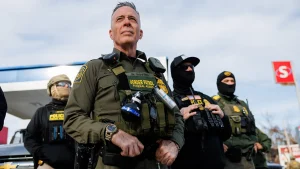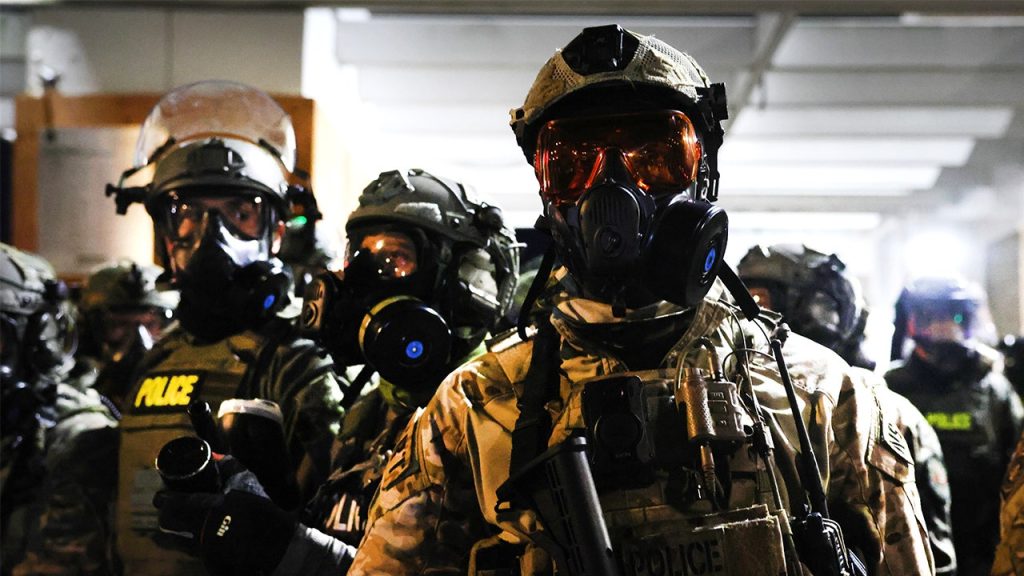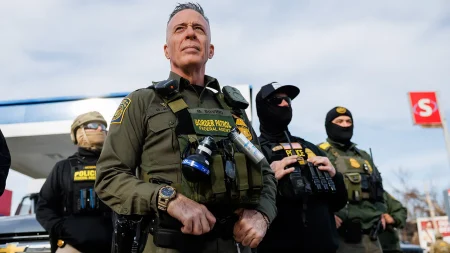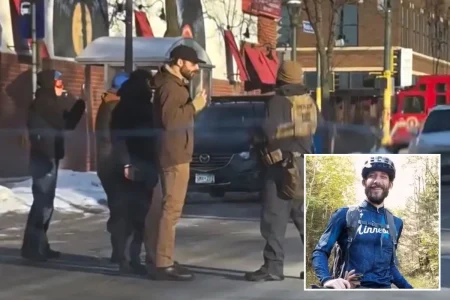Portland Man Charged with Threatening Federal Officers
In a disturbing case highlighting the rising tensions between some citizens and law enforcement, 45-year-old John Paul Cupp of Portland is facing serious federal charges for allegedly making violent threats against Immigration and Customs Enforcement (ICE) officers and their families. According to the FBI, Cupp directed threatening language at officers outside an ICE facility in South Portland on October 14, where he reportedly promised violence not only against the officers themselves but extended these threats to include sexual violence against their spouses and harm to their children. The case represents a troubling example of how political tensions can escalate into dangerous personal threats against public servants.
The concerning behavior allegedly didn’t end with the initial confrontation. Court documents reveal that Cupp continued his threatening campaign online, posting a video on November 3, 2025, that repeated the same violent rhetoric against federal agents and their wives. Just ten days later, on November 13, he allegedly posted additional threats targeting officers and their families. FBI investigators describe Cupp as “a prolific producer of online content” who regularly posts aggressive rhetoric that includes calls for war against the United States, antisemitic threats, and generalized threats of violence. This pattern of escalating online behavior followed by real-world confrontation represents what law enforcement considers a dangerous radicalization pathway.
The case has drawn attention from the highest levels of federal law enforcement, with FBI Director Kash Patel making a clear statement about the agency’s position. “If you threaten to kill law enforcement officers or harm their families, you will face the full weight of the federal government,” Patel said in a statement to Fox News Digital. “This FBI will use every investigative tool we have to identify violent extremists and remove them from our communities.” The strong language from the FBI Director underscores the seriousness with which federal authorities are treating threats against law enforcement, particularly in a political climate where officers have increasingly become targets of both rhetoric and actual violence.
Local federal prosecutors have also taken a firm stance on the case. U.S. Attorney for the District of Oregon Scott E. Bradford emphasized that threats of violence against law enforcement “will not be tolerated” in his jurisdiction. “The U.S. Attorney’s Office remains committed to holding those accountable who threaten and intimidate those who protect our communities, and we will continue to prosecute criminal threats of violence to the fullest extent of the law,” Bradford stated. His comments reflect a growing concern about the safety and well-being of law enforcement personnel who face not only physical dangers in their daily work but now increasingly must worry about targeted threats against themselves and their loved ones.
The Portland FBI field office has similarly expressed grave concern about the nature of these threats. Acting FBI Portland Special Agent in Charge Matt Torres stated that threats against law enforcement “have absolutely no place in our community,” adding that “attempts to intimidate those sworn to protect the American people and uphold our Constitution degrade efforts to keep all of us safe.” Torres promised that the FBI would use all available investigative resources to identify and arrest individuals using violent rhetoric. The Portland area has seen significant tensions between law enforcement and portions of the community in recent years, making this case particularly sensitive in the local context.
This case emerges during a period of heightened national conversation about the role of law enforcement, immigration enforcement, and the protection of civil liberties. While passionate debate about policy issues is a cornerstone of democratic society, law enforcement officials emphasize that crossing the line into specific, violent threats against individuals represents a criminal act, not protected speech. For the officers targeted by such threats, the impact extends beyond their professional lives, creating stress and security concerns for their entire families. As this case proceeds through the justice system, it will likely serve as a reminder of the boundaries between constitutionally protected protest and criminal intimidation, while raising important questions about the escalation of political rhetoric into potentially dangerous behavior.











